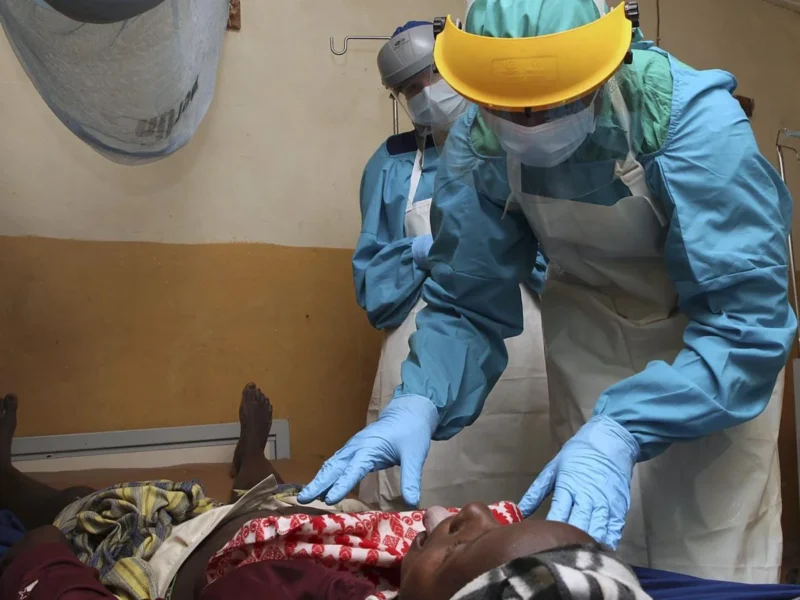Over 684,000 Nigerians die from non-communicable diseases annually, urging calls for increased awareness, lifestyle changes, and policy intervention.
[dropcap]A[/dropcap] recent report revealing that more than 684,000 Nigerians die each year due to non-communicable diseases (NCDs) has highlighted a growing public health crisis.
NCDs, which are not contagious, include chronic illnesses such as hypertension, diabetes, cancer, and stroke. Despite their high fatality rate, these diseases have received far less attention than infectious diseases, which often dominate public discourse in Nigeria.
Also read: UNICEF targets 3.8 million children for measles vaccination in Northern States
Lead Strategist at Gatefield, Adewunmi Emoruwa, addressed this alarming trend during a recent health summit in Abuja titled Beyond65: Preventing the Quiet Epidemic.
Emoruwa decried the devastating impact of NCDs, noting that these diseases kill a population equivalent to Luxembourg each year. He called for a renewed focus on NCDs, stating, “This preventable crisis can no longer be ignored.”
Emoruwa highlighted a disturbing rise in NCD-related deaths, which have increased from 24% in 2010 to 29% today.
In response, Gatefield launched a strategic health initiative aimed at reducing these fatalities and improving life expectancy in Nigeria, where the average lifespan is just 52 years.
According to Emoruwa, a combination of unhealthy diets, excessive salt and sugar intake, alcohol and tobacco use, and environmental pollution are key drivers of this “quiet epidemic.”
Statistics shared at the summit indicate that Nigerians consume an average of 4.9 servings of sugary drinks per week—almost twice the global average.
The country’s salt intake is also dangerously high, averaging 5.8 grams per day, well above the World Health Organisation’s recommended limit.
Furthermore, 27.3% of Nigerians are reported to engage in heavy episodic drinking, while a staggering 48 million Nigerians lack sufficient physical activity, heightening their risk for obesity, diabetes, and heart disease.
The summit also spotlighted the economic impact of NCDs. According to Professor Anthony Ugwu of Nnamdi Azikiwe University, NCDs reduce the productivity of Nigerians who could otherwise contribute to economic growth.
With higher healthcare costs linked to chronic illnesses, Ugwu warned that the nation’s poverty levels could escalate further.
Dr. Uche Okenyi of Nova’s Place Hospital in Lagos outlined the financial burden that NCDs place on Nigeria’s healthcare sector.
“The cost of care is prohibitive, from diagnosis to ongoing treatment,” he said. This financial strain, he explained, can destabilise health sector budgets, limit resources for other services, and worsen the situation by leading to strikes over inadequate healthcare worker remuneration.
Former Executive Vice-Chairman of the Federal Competition and Consumer Protection Commission, Babatunde Irukera, called for robust government policies to tackle the crisis.
He emphasised the need for both physical infrastructure, such as diagnostic facilities, and soft infrastructure, like adequately trained health professionals, to meet the healthcare demands associated with NCDs.
Gatefield’s Co-Chair, Sa’adatu Hamu-Aliyu, further noted the disparity in life expectancy between Nigeria and developed countries.
She compared Nigeria’s average life expectancy of 52 years with that of over 80 years in Europe, Japan, and Canada, highlighting the urgency for preventative strategies.
Gatefield’s health initiative includes five interventions: improving national diet, tackling tobacco use, supporting mental health, encouraging regular screenings, and enforcing stricter regulations on ultra-processed foods and sugary beverages.
Hamu-Aliyu stressed the importance of government-backed health campaigns to foster behavioural changes and raise awareness of the risks associated with NCDs.
Experts agree that both government action and individual lifestyle changes are essential to curbing the surge of NCDs in Nigeria.
While the government must implement policies promoting healthy behaviours and increase access to healthcare, Nigerians themselves must adopt healthier lifestyles. Emoruwa reminded the audience that NCDs like cancer and heart disease are not death sentences if diagnosed early.





























